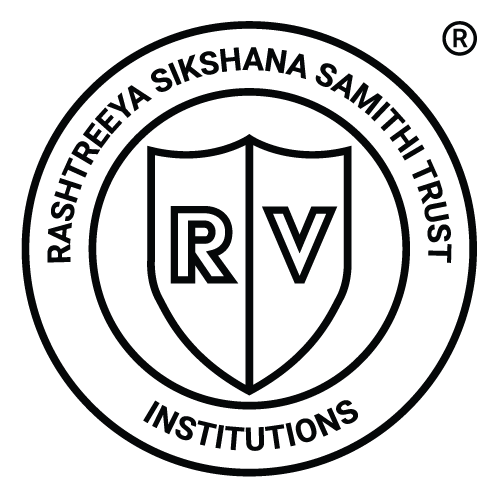Opportunities in Bangalore and Beyond
In the ever-evolving landscape of technology, Very Large Scale Integration (VLSI) continues to be the cornerstone of electronic innovation. From the smartphone in your pocket to advanced medical equipment and autonomous vehicles, VLSI technology powers countless devices that define our modern world. As global demand for semiconductor expertise grows, Bangalore has emerged as a prominent hub for VLSI development and training in India, offering exceptional opportunities for aspiring professionals.
Understanding VLSI: The Building Blocks of Digital Revolution and AI.
Very Large Scale Integration refers to the process of creating integrated circuits by combining thousands or millions of transistors onto a single chip. This technology marked a paradigm shift in electronics when it first emerged in the late 1970s, enabling unprecedented levels of computational power in increasingly smaller spaces.
Today, VLSI encompasses several specialized disciplines:
- Digital IC Design: Creating microprocessors, memory chips, and digital signal processors
- Analog IC Design: Developing circuits for real-world signal processing
- Mixed-Signal Design: Combining digital and analog components on the same chip
- Physical Design: Transforming logical circuit descriptions into actual chip layouts
- Verification: Ensuring functionality and performance match specifications
As technology nodes continue to shrink below 3nm, the complexity and sophistication of VLSI design have increased exponentially, creating high demand for skilled professionals worldwide.
VLSI in Bangalore: India’s Silicon Valley
Bangalore has rightfully earned its reputation as India’s Silicon Valley, hosting numerous semiconductor companies, design centers, and research facilities. The city’s VLSI ecosystem includes:
- Global Semiconductor Giants: Companies like Intel, Texas Instruments, Qualcomm, MediaTek, Synopsys, Samsung, Broadcom and AMD have established significant design centers in Bangalore.
- Indigenous Semiconductor Firms: Homegrown companies focusing on specialized chip design and services have flourished in the city’s innovation-friendly environment.
- Research Institutions: Prestigious institutes conducting cutting-edge semiconductor research collaborate closely with industry partners and also churning out bright engineers.
- Supportive Infrastructure: The city offers reliable power, high-speed internet, and modern facilities essential for semiconductor design activities.
This concentration of VLSI expertise has created a vibrant community where knowledge sharing, career advancement, and technological innovation thrive.
VLSI Training: Building the Skills for Tomorrow’s Technology
The sophisticated nature of VLSI design requires specialized training beyond traditional engineering education. VLSI training programs in Bangalore have evolved to meet this need, offering comprehensive courses that blend theoretical knowledge with practical application.
What to Look for in VLSI Training
The best VLSI training programs typically feature:
- Industry expert faculty to bridge the industry and academic knowledge, it is very important to ensure who teaches, how it is taught and what is being taught?
- Industry-Relevant Curriculum: Covering essential tools like, Synopsys, Cadence and Mentor Graphics
- Hands-on Projects: Practical experience with actual chip design workflows which is relevant to the industry environments.
- Specialized Tracks: Focus areas like physical design, verification, or RTL Verification, Full Custom flows, DFT and AMS.
- Industry Partnerships: Connections with potential employers and real-world project exposure.
- Advanced Topics: Coverage of emerging technologies like IoT chip design, AI accelerators, and automotive electronics
Many training institutes in Bangalore offer flexible learning options, including weekend courses for working professionals, full-time immersive programs, and online options with lab access.
Career Prospects in VLSI
Completing quality VLSI training opens doors to diverse career opportunities:
- Design Engineers: Creating and implementing circuit designs
- Verification Engineers: Ensuring designs meet specifications
- Physical Design Engineers: Translating logical designs into physical layouts
- Test Engineers: Developing strategies to test manufactured chips
- Applications Engineers: Supporting customers in implementing chip solutions
The semiconductor industry faces a persistent talent shortage, with demand for skilled professionals consistently exceeding supply. This creates favorable conditions for career growth, competitive compensation, and long-term job security.
Future Trends Shaping VLSI
Several emerging trends are reshaping the VLSI landscape and creating new opportunities:
- Chiplets: A chiplet is a tiny integrated circuit (IC) that contains a well-defined subset of functionality. It is designed to be combined with other chiplets on an interposer in a single package to create a complex component such as a computer processor.
- AI and Machine Learning Hardware: Specialized chips for artificial intelligence applications
- IoT and Edge Computing: Low-power designs for distributed computing
- Automotive Electronics: Advanced chips for autonomous and electric vehicles
- Open-Source IP’s: Community-driven chip design initiatives like RISC-V
- More Than Moore: Heterogeneous integration beyond traditional scaling
These developments ensure that VLSI remains an exciting and dynamic field with continuous innovation potential.
Summary
VLSI technology continues to power the digital revolution, creating unprecedented opportunities for professionals with the right skills and knowledge. Bangalore’s unique position as a semiconductor hub makes it an ideal location for pursuing VLSI training and building a rewarding career in this essential field.
Whether you’re a recent graduate considering specialization options or an experienced professional looking to pivot into the semiconductor industry, VLSI offers a path with exceptional growth potential, intellectual challenges, and the satisfaction of contributing to technologies that shape our future.
As global dependency on semiconductor technology increases, the value of VLSI expertise will only appreciate, making it a strategic career choice in today’s technology-driven economy.





